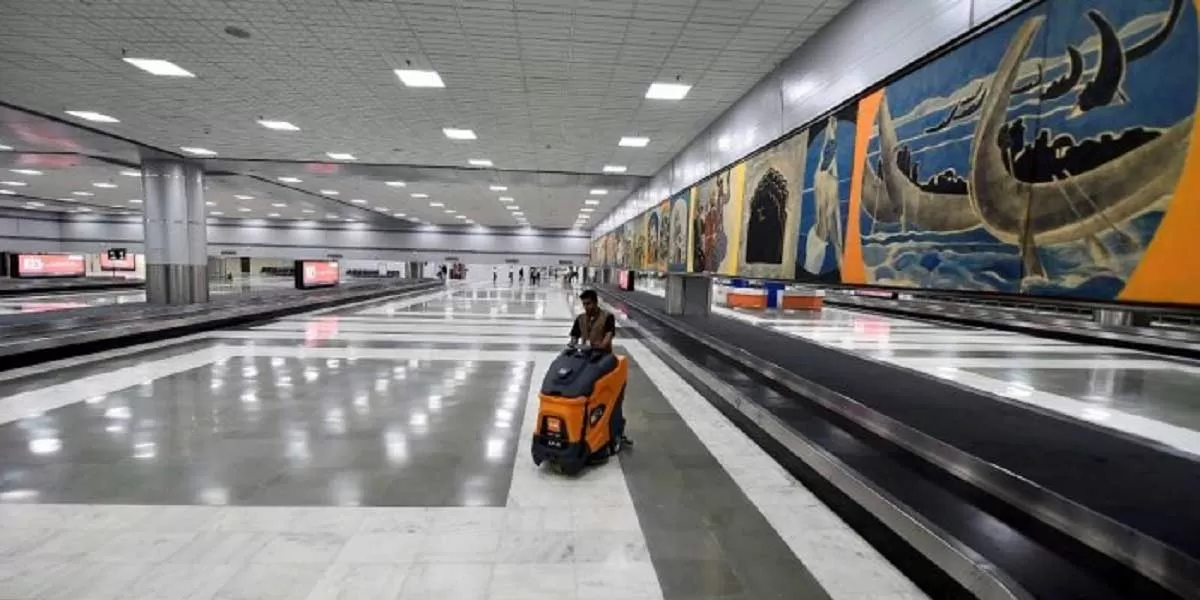GMR Airports is set to acquire an additional 10% stake in Delhi International Airport Limited (DIAL) from Fraport AG, the German airport operator, for $126 million. This acquisition will increase GMR's stake in DIAL to 74%, reinforcing its control over the airport’s operations and future developments. The deal is part of Fraport’s strategic exit from its long-term investment in India, while GMR aims to further consolidate its position in India’s aviation sector.
Key Points:
Acquisition Details: GMR Airports has finalized an agreement to purchase an additional 10% stake in DIAL from Fraport AG for $126 million. The transaction is expected to boost GMR’s total shareholding in DIAL to 74%, providing the company with greater operational control and influence over the future direction of the airport.
Fraport AG’s Exit: Fraport AG, a prominent German airport operator, has held a minority stake in DIAL since its inception. However, the decision to sell its stake marks Fraport’s exit from the Indian aviation market. Fraport has been gradually reducing its presence in the region, and this transaction is part of its broader strategy to refocus on its core markets in Europe and other regions.
GMR’s Stake Consolidation: By acquiring the additional 10% stake, GMR Airports aims to strengthen its position as a leading player in India’s aviation industry. With increased control over DIAL, GMR plans to implement strategic upgrades, expand capacity, and enhance services at Delhi’s Indira Gandhi International Airport (IGIA). The acquisition is also expected to support GMR’s long-term vision of being a dominant airport operator in India and internationally.
Significance of IGIA: Indira Gandhi International Airport is one of the busiest airports in Asia and a critical hub for international and domestic traffic in India. The airport plays a vital role in India’s aviation sector, handling millions of passengers annually and serving as a key gateway for trade and tourism. GMR’s enhanced stake in DIAL will enable it to make more significant decisions concerning infrastructure development, operational efficiency, and passenger services.
Strategic Implications: This acquisition allows GMR to further its expansion plans, particularly with India’s aviation sector recovering post-pandemic. GMR can now have a more direct impact on Delhi Airport's growth strategy, including potential plans for terminal expansion, modernization of facilities, and the introduction of new technologies aimed at improving passenger experience and operational efficiency.
Aviation Sector Recovery: The Indian aviation sector, which was severely impacted by the COVID-19 pandemic, is seeing a resurgence as air travel demand grows. GMR Airports’ decision to increase its stake in DIAL reflects its confidence in the long-term potential of the Indian aviation market, driven by a growing middle class, increased domestic and international travel, and government initiatives to enhance infrastructure.
Fraport’s Strategy: Fraport AG's decision to exit India comes as the company focuses its resources on its key assets in Europe and other major international markets. Fraport has been involved in the development and management of airports globally, and this move allows it to streamline its portfolio and focus on regions where it sees more significant strategic opportunities.
Future Prospects for GMR: With a controlling stake in DIAL, GMR Airports is well-positioned to capitalize on future growth opportunities. The company is expected to continue investing in capacity enhancements at IGIA, ensuring it can handle increasing passenger volumes. GMR’s growing airport portfolio, both in India and abroad, reinforces its reputation as a global player in airport infrastructure.
Conclusion:
GMR Airports’ acquisition of an additional 10% stake in Delhi International Airport from Fraport AG represents a strategic move to consolidate its leadership in India’s aviation sector. The deal provides GMR with greater control over one of the country’s most critical airport assets, allowing it to drive future growth and development at IGIA. Fraport’s exit, meanwhile, reflects its shift towards focusing on other global markets.





















